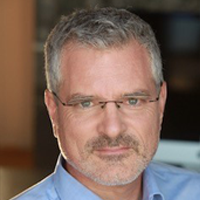Analytical Challenges in times of COVID
On Monday the 26th of April between 19h and 21h, 5 experts will share their experiences and analytical challenges during the COVID pandemic. Participation is free of charge.
For this webinar, we have joined forces with Laborama.
For your information: The webinar will be entirely in English
PROGRAMME
| 19h00 | Introduction and presentation of Laborama & KVCV |
| 19h10 | SARS-CoV-2 full-length sequencing using ONT MinION sequencing Prof. Piet Maes - KU Leuven, Rega Institute |
| 19h30 | A breath-based fast COVID-19 molecular test Dr. Peter Peumans - imec |
| 19h50 | Future challenges in COVID-19 screening to maintain economic activity Ronald Bailly - Analis |
| 20h10 |
Surface testing for SARS-COV-2 - easy to use, onsite testing of surfaces in 15 minutes |
| 20h30 | Methods for essential biophysical characterization in vaccine research, development and QC Dr. Daniel Some - Wyatt Technology |
ABSTRACTS
SARS-CoV-2 full-length sequencing using ONT MinION sequencing
Prof. Piet Maes - Professor at KU Leuven, Rega Institute
Sequencing enabled the world to rapidly identify SARS-CoV-2 and develop diagnostic tests and other tools for outbreak management. It remains important to continually monitor the evolution of the virus for not only diagnosis but also for vaccine development and adaptation.
A breath-based fast COVID-19 molecular test
Dr. Peter Peumans - Head of Health Technology at imec
The COVID-19 pandemic highlights that infectious diseases diagnostics is due for an update. We’ve developed an approach to respiratory infection molecular diagnostics by efficiently capturing exhaled particles from a breath sample followed by fast PCR. This approach to testing is much more comfortable than a nasopharyngeal swab, can be self-sampled (including children), and is a direct measurement of contagiousness. We will discuss the details of the test and results of the clinical studies.
Future challenges in COVID-19 screening to maintain economic activity
Ronald Bailly - Product Manager at Analis
Screening strategies remain a major challenge for companies where telework is not widespread or possible. During the first and second pandemic wave, molecular biology laboratories were faced with a lack of raw materials and equipment to be able to absorb a large number of tests, resulting in test results being returned after several days. Although molecular biology is the reference method in terms of specificity and sensitivity, the capacity to deliver results will reach the limit of saturation when faced with an increased number of tests. Other screening strategies are needed in parallel for a mass screening strategy. Rapid and automated antigen tests can be deployed to enable large-scale screening, as long as the limits are set and supervised by health professionals. Another challenge will be to define the role of serological tests in the screening strategy. This screening method shows "the true scale of the pandemic". As serological tests are also able to provide data on the number of people who have been immunized, these tests will play an important role in the follow-up of the vaccination campaign.
Surface testing for SARS-COV-2 - easy to use, onsite testing of surfaces in 15 minutes
Christopher Pease - founder of bioMire (invited by VWR/Avantor)
As the Covid-19 pandemic continues to progress despite the specific prevention measures and large scale personal testing followed by isolation of infected individuals, as for any challenge industries evaluate the risks, their consequences, develop processes or procedures to manage them, and monitor their efficiency.
In the case of the spread of SARS CoV-2, speed is of essence so that corrective actions can be taken immediately to clear or address the risk.
The emergence of rapid, autonomous, Do-It-Yourself field test kits used as conventional hygiene tests but very specific to the coronavirus, makes on-site screening, sanitation due diligence and reassurance easy.
Topics covered in the presentation:
Benefits of rapid testing
Hygiene monitoring with the COV-Hygien Xpress kits
Industry applications
Methods for essential biophysical characterization in vaccine research, development and QC
Dr. Daniel Some - Principal Scientist at Wyatt Technology
Characterization of biophysical properties is a central task for research and development of the vaccine production processes and product formulation as well as final quality control tests. It ensures that the solution reaching the patient adheres to strict standards for safety, efficacy and dosing. Light scattering plays a key role in the biophysical characterization of vaccines of all types, from traditional killed or attenuated viruses, polysaccharides and adjuvanted protein sub-units through modern vaccines such as engineered viral vectors and nano-formulated RNA or DNA. In this seminar I will describe the light scattering toolkit for vaccine characterization and how it is applied to determine essential biophysical attributes such as molar mass, size, physical titer, composition or payload, and homogeneity.
SPEAKERS
 |
Prof. Piet Maes - KU Leuven, Rega Institute Piet Maes is assistant professor at the KU Leuven, Rega Institute. The focus of his research is on the ecology of emerging zoonotic viruses, both in their natural and dead-end host context, and on the identification of novel viruses in humans, animals and insects. He is committed to investigate these viruses’ clinical relevance for and the genetic susceptibility of their host, and to explore and predict the mechanisms that determine the capability of these viruses to switch hosts as well as the pathogenic potential of these reservoir-borne viruses. |
 |
Dr. Peter Peumans - Head of Health Technology at imec Dr. Peumans holds a Ph.D. in electrical engineering from Princeton University, and a bachelor’s and master’s degree from the Katholieke Universiteit Leuven. Prior to joining imec in 2011, Dr. Peumans was a professor of electrical engineering at Stanford University. He is the recipient of an NSF CAREER award and a Belgian-American Educational Foundation honorary fellowship. He currently leads imec’s health technologies programs. |
 |
Ronald Bailly - Product Manager at Analis Ronald Bailly holds a Master's degree in Biotechnology with a specialization in Industrial Toxicology at the Catholic University of Leuven. |
 |
Christopher Pease - Founder of bioMire Christopher Pease holds a Master's degree in Biochemistry form INSA Lyon. |
 |
Dr. Daniel Some - Principal Scientist at Wyatt Technology As Principal Scientist of Wyatt's Marketing Department, Dr. Some is responsible for conveying to customers the manifold benefits of our unique products and services, as well as learning about specific needs and opportunities expressed by our customers. He believes that our success can only be achieved through that of our users. |


